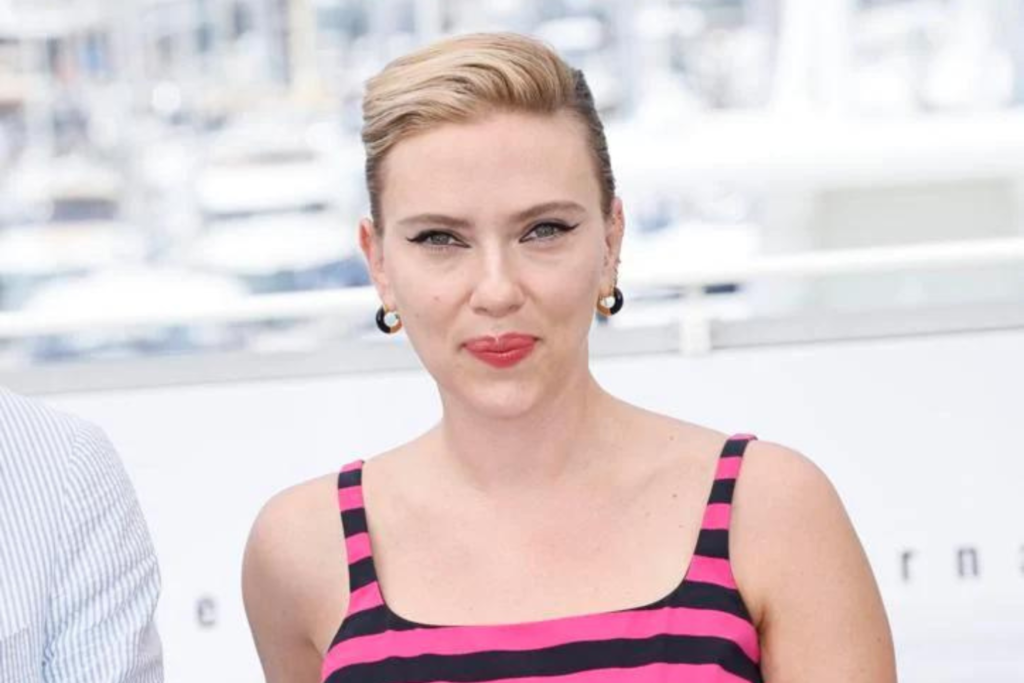Scarlett Johansson, one of the most recognizable voices in Hollywood, has been in the headlines recently, but this time, not for her acting. The actress, known for her roles in blockbuster films such as The Avengers and Lost in Translation, has made it clear that she is furious with OpenAI. According to Johansson, the AI company mimicked her voice in ChatGPT, even after she explicitly refused to collaborate with them. This move has sparked heated debates on ethics, AI rights, and the implications of artificial intelligence technologies mimicking the voice and likeness of real people.
OpenAI’s Use of Celebrity Voices Without Consent
In the modern world, AI systems like OpenAI’s ChatGPT have become more advanced, boasting capabilities that range from producing human-like text responses to replicating the voices of real individuals. While this technology is indeed impressive, it raises critical ethical concerns. Scarlett Johansson claims that OpenAI used her voice without her consent, despite her declining an offer to collaborate. Her stance has opened a significant discussion on the importance of protecting celebrity identities in the age of AI.
For years, celebrities have safeguarded their images, voices, and likenesses, particularly because their identities form part of their brand. With AI platforms like ChatGPT advancing to the point where they can almost perfectly recreate a person’s voice, the boundaries of personal identity rights are becoming increasingly blurred.
What Does This Mean for Intellectual Property?
The Scarlett Johansson versus OpenAI controversy underscores the need for clearer regulations regarding intellectual property rights in the AI space. When a celebrity’s voice or image is used without permission, it may not only be a breach of privacy but also a violation of their right of publicity. The right of publicity refers to an individual’s ability to control how their likeness, voice, or persona is used for commercial purposes.
In this case, Scarlett Johansson believes OpenAI crossed a line by creating a voice that mimics hers, allegedly for their own commercial gain. Such use could potentially influence Johansson’s brand, career choices, and personal image without her direct involvement, which is why many are calling for stricter legislation surrounding AI and celebrity likeness.
The Rise of Deepfakes and AI Voice Cloning: A Growing Concern
As AI voice cloning and deepfake technologies continue to advance, there is growing concern over how these tools can be used or misused. Deepfakes are artificially generated images, videos, or voices that are designed to mimic real people, often to an indistinguishable degree. Celebrities like Johansson are particularly vulnerable to this technology since their voices and images are widely available in public media.
In the case of Scarlett Johansson, it appears that OpenAI used similar technologies to generate an AI voice that closely resembles hers. Though the company likely did this under the pretense of demonstrating AI capabilities, it crosses a moral and potentially legal line when done without the individual’s permission.
AI’s Impact on Reputation and Public Perception
The misuse of AI to imitate celebrities without their approval can have lasting consequences on their careers. An unauthorized use of Johansson’s voice could result in negative public perception, especially if that voice is used in a context she disagrees with. This could range from the promotion of products to creating opinions that the real person might not endorse. Such situations can tarnish the carefully curated public image of individuals like Scarlett Johansson.
As Johansson pointed out, these technologies are evolving at a speed where laws and ethical standards struggle to keep up. While AI can be a useful tool, its misuse can result in severe reputation damage and even financial loss for those whose identities are used improperly.
Ethical Implications of AI in the Entertainment Industry
The entertainment industry has long been driven by human creativity, but the rise of AI introduces a new era. While some see it as a tool to enhance production processes, others are wary of its potential to exploit the identities of actors, musicians, and other public figures.
In this scenario, Scarlett Johansson’s situation serves as a warning to others in the industry. She turned down OpenAI’s offer to collaborate, not expecting that her refusal would be ignored, and yet her voice would still be mimicked. Many worry that this precedent could open the floodgates for unauthorized AI recreations of actors, musicians, and even politicians in the future.
The ethical question here revolves around whether companies like OpenAI should be allowed to use publicly available content to train their systems to mimic real people. While AI-generated content can be useful in many ways, it becomes problematic when used without proper permissions from the individuals involved.
Current Legal Frameworks: Are They Sufficient?
The law has struggled to keep pace with AI’s rapid development, and cases like Johansson’s illustrate the need for updated frameworks. In many jurisdictions, voice imitation and likeness laws are still in their infancy, meaning celebrities have little recourse to protect themselves from AI exploitation. The legal landscape surrounding AI and voice cloning is evolving, but it is far from complete.
Celebrities may soon need to take additional steps, such as securing digital trademarks for their voices and images, to safeguard their personal brands. But even then, enforcement can be a challenge, particularly when AI-generated content can circulate globally in a matter of minutes.
Conclusion: A Call for Regulation and Accountability
Scarlett Johansson’s battle with OpenAI shines a spotlight on the urgent need for better AI regulation. With technologies capable of mimicking real people becoming more advanced, the risk of unethical practices grows. As it stands, many companies may feel empowered to use these tools in ways that compromise individuals’ privacy and identity rights.
Johansson’s fight is not just about her own voice but about the larger issue of protecting personal identities in the AI era. As society grapples with these new technologies, it’s crucial for governments, industries, and legal entities to work together to establish clear and enforceable standards for how AI should be used when dealing with the likeness and voice of real people.

